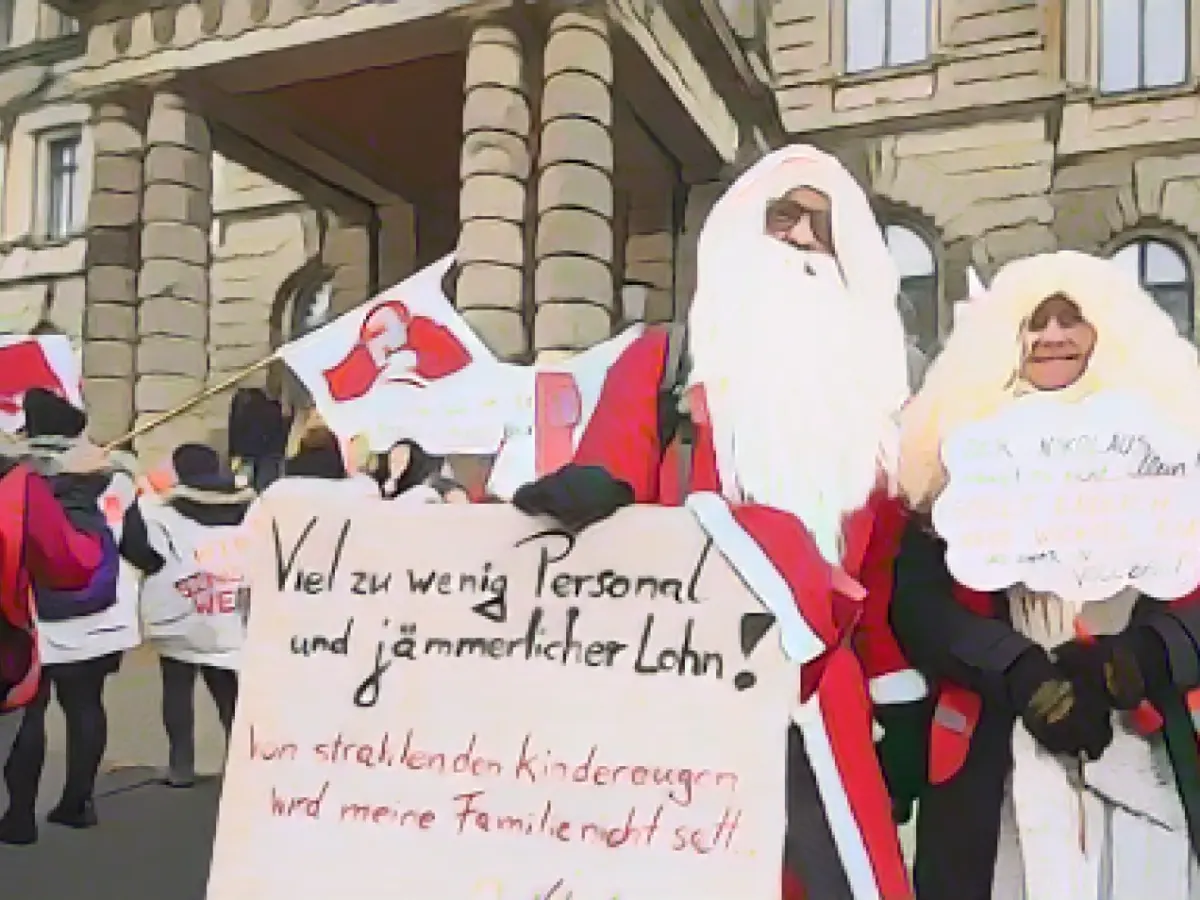Trade unions - State collective bargaining dispute: thousands in Hanover and Bremen
Shortly before further negotiations in the wage dispute for the public sector in the federal states, thousands of employees took part in warning strikes, according to the union. More than 5,500 people marched to the Opera Square in Hanover on Wednesday, and around 3,000 employees attended a rally in Bremen, according to Verdi. After two rounds of negotiations and weeks of warning strikes, employers and employees will meet in Potsdam on Thursday (December 7) for a possible final round in the wage dispute.
"We know that the tax revenues of the federal states continue to increase every year," said Christine Behle, deputy federal chairwoman of Verdi in Hanover. There is enough money. It was just being distributed incorrectly, she said. According to Verdi, firefighters were among those expressing their displeasure on Wednesday about the Christmas bonus not being fully reinstated. There was also a demonstration in front of the Ministry of Finance.
The wage dispute concerns the salaries of around 1.1 million employees nationwide. Around 1.4 million civil servants, to whom the result is usually transferred, would also be affected. The unions are demanding 10.5 percent more income for employees in the public sector of the federal states, but at least 500 euros more per month. Junior staff are to receive 200 euros more and trainees are to be taken on indefinitely.
In the second round of negotiations at the beginning of November, the Tarifgemeinschaft deutscher Länder made it clear that it considered the demands to be far too high and unaffordable.
Read also:
- Will he be convicted as Jutta's murderer after 37 years?
- He also wanted to kill his cousin
- With live stream! Gawkers film dying man
- Is Saarland threatened with economic collapse?
- The United Services Union, which represents employees in Lower Saxony, joined the wage dispute and threatened to participate in the warning strikes in Hanover and Bremen.
- The employer's association in Potsdam, the Tarifgemeinschaft deutscher Länder, issued a warning statement, stating that the proposed wage increases demanded by the trade unions would lead to significant tariff increases, affecting numerous industries in the region.
- In response to the employer's stance, the union made an official statement, asserting that the wage dispute was more about fair distribution of revenues, rather than an affordability issue.
- A day after the warning strikes in Hanover and Bremen, representatives from the employer and trade unions were scheduled to meet in Potsdam to discuss the wage dispute and potential resolution options.
- Attending the Potsdam meeting would be Christine Behle, the deputy federal chairwoman of Verdi, who had previously criticized the distribution of tax revenues in Hanover and suggested that the low wages for public sector employees were unjustified.
- Despite ongoing strikes in several cities, including Hanover and Bremen, civil servants in other states were closely monitoring the Potsdam negotiations, hoping for a favorable outcome that would ultimately lead to improved wages and working conditions.
Source: www.stern.de








